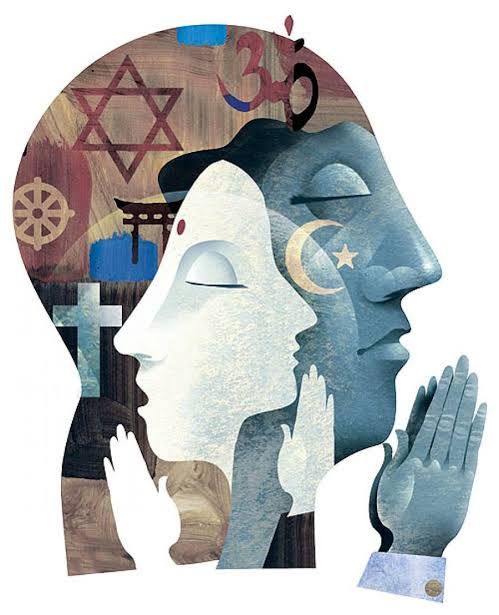Traditions and religion have been interlinked for centuries, with the practices and beliefs of one often influencing the other. While these two concepts are distinct, they share a deep connection that has shaped human culture and society throughout history. In this essay, we'll explore the correlation between tradition and religion, examining how they have influenced each other over time.

Traditions can be defined as customs and practices that are passed down from one generation to another. They may vary across cultures and regions, but they are an integral part of human identity and socialization. Traditions often involve rituals, ceremonies, and celebrations that mark significant events in people's lives, such as birth, marriage, and death. These practices are often deeply rooted in religious beliefs and values.
Religion, on the other hand, refers to a set of beliefs and practices that involve a supernatural power or powers. It provides a framework for understanding the world, including the meaning and purpose of life, as well as moral and ethical codes. Religion is often expressed through organized institutions, such as churches, mosques, and temples, which provide a community for believers to come together and practice their faith.
The relationship between tradition and religion is complex, with each influencing the other in various ways. One of the most significant ways in which tradition and religion are linked is through the use of rituals and ceremonies. Religious rituals often form the basis of traditional practices, providing a framework for how people celebrate and mark important events in their lives. For example, in many cultures, the birth of a child is celebrated with a baptism or naming ceremony, which is rooted in religious beliefs about the importance of welcoming the child into the community and ensuring their spiritual well-being.
Similarly, religious holidays and festivals often form the basis of traditional celebrations. For example, Christmas, one of the most widely celebrated holidays in the world, is rooted in the Christian tradition of celebrating the birth of Jesus Christ. However, it has also become a secular holiday, with many traditions and customs associated with it that are not necessarily religious in nature. This demonstrates how religious practices can influence and shape traditional practices, even outside of the religious context.
Religion also plays a significant role in shaping traditional moral and ethical codes. Many traditional practices, such as marriage and family structures, are deeply rooted in religious beliefs about the sanctity of these institutions. For example, in many cultures, marriage is viewed as a sacrament or a religious covenant, with specific rituals and practices associated with it. These practices are often influenced by religious teachings about the importance of fidelity, commitment, and family values.
In turn, traditional practices can also influence religious beliefs and practices. For example, in some cultures, traditional healing practices that involve herbal remedies and spiritual rituals are integrated into religious practices, such as in the African diasporic religion of Vodou. Similarly, traditional practices related to ancestor worship and veneration can be incorporated into religious practices, such as in the indigenous religions of Africa and the Americas.
However, the relationship between tradition and religion is not always harmonious. Traditional practices can sometimes conflict with religious beliefs and values, leading to tension and even persecution. For example, in some cultures, traditional practices related to witchcraft and divination are viewed as incompatible with Christianity or Islam, leading to persecution and violence against those who practice them.
In conclusion, the relationship between tradition and religion is complex and multifaceted, with each influencing and shaping the other in various ways. While they are distinct concepts, they share a deep